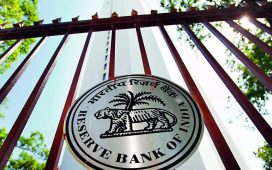NatWest has said it will not pay £7.6 million in potential payments to former chief executive Dame Alison Rose after she left the company in July amid the fallout over the debanking row with Nigel Farage.
However, Ms Rose will still be entitled to £1.7million in salary, fixed share allowance and a pension allowance for the rest of the notice period under her contract.
She stepped down in late July after admitting she discussed the former UKIP leader’s banking arrangements with a BBC journalist.
In its statement on Friday, NatWest said Dame Alison would forfeit unvested share awards worth £4.7million at Thursday’s closing share price.
She would also give up her variable pay for her work in 2023 which could have been worth up to £2.9million, meaning the overall pay award she will forego amounts to £7.6million.
City law firm Travers Smith was asked by the bank to conduct a review into the affair, which found that Rose “did not consciously set out inappropriately to disclose the relevant information”.
This week, the ex-boss also received an apology from the Information Commissioner’s Office after they claimed she had broken privacy laws and breached data protection laws – which she did not.
NatWest will contribute “a maximum of £395,000 plus VAT for legal fees and £60,000 plus VAT for outplacement support” according to its 10 November update.
The decision to “debank” Mr Farage sparked a firestorm in Westminster and forced the City watchdog into an urgent review of the practice across Britain’s banking sector.
The bank is understood to be trying to draw a line under the Nigel Farage debanking row.
The report, which the BBC was forced to amend, suggested that the former UKIP leader did not meet its commercial criteria.
It subsequently emerged that his political views had been instrumental in the decision.
Last month, the bank apologised to Mr Farage, acknowledging that it had been guilty of “serious failings” in the way it had treated him.











